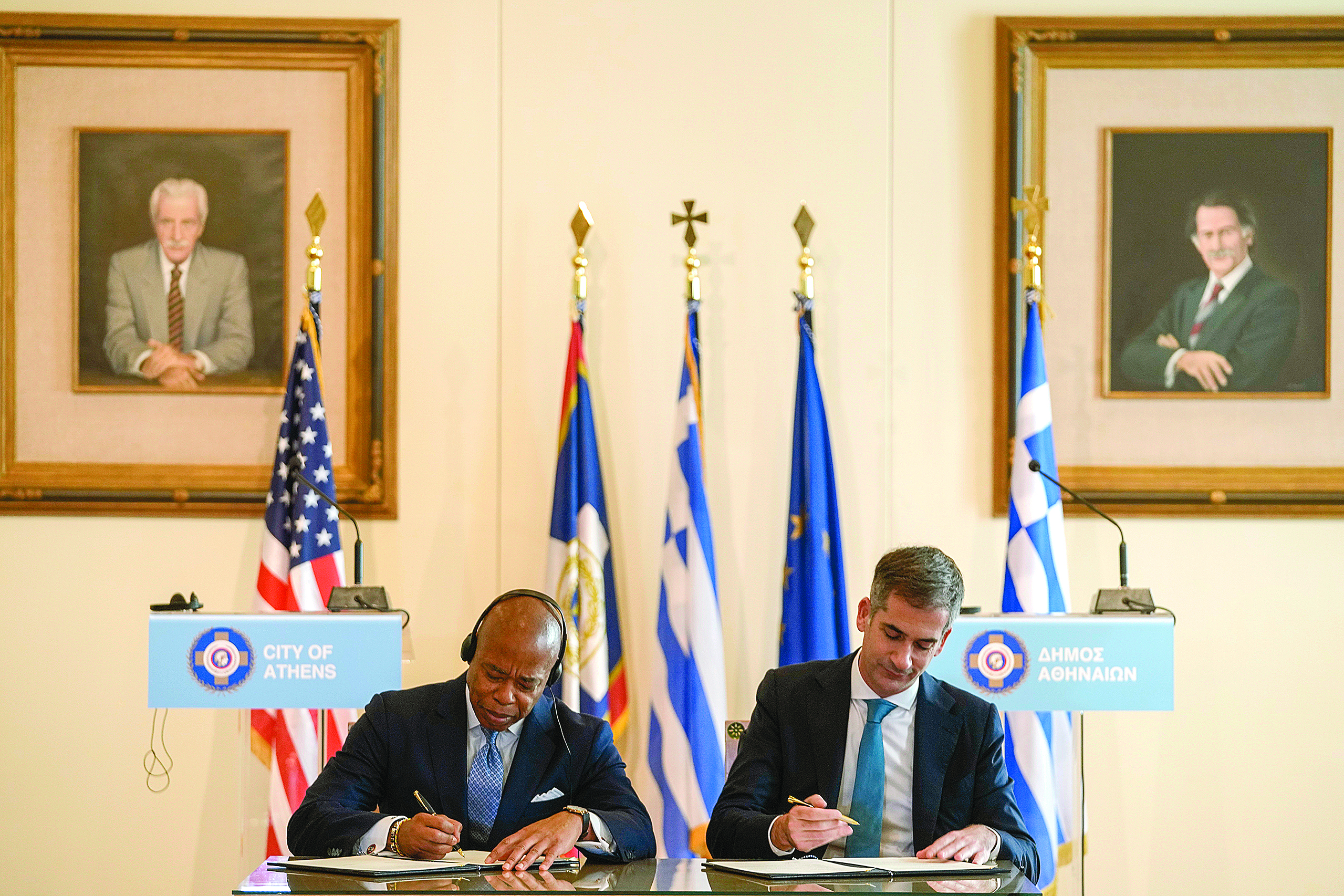In Athens ‘you feel safe, you feel comfortable’
In Kathimerini interview, NYC mayor takes stock of visit to Greek capital, defends plan to hospitalize mentally ill homeless people

The first thing that Eric Adams, a former police officer and state senator and the current mayor of New York, noticed when he entered Athens City Hall on Thursday, was an enormous screen on one of the walls, featuring numbers corresponding to the real-time progression of various citizens’ requests across Athens. “This is good,” Adams remarked to Kostas Bakoyannis, his Athenian counterpart. “Who is the designer?” he asked. Bakoyannis presented City Hall’s chief technology officer, who said they developed the program in about six months. “You wanna live in New York?” Adams said, before asking for a green or mint tea.
A few hours later, when asked by Kathimerini what – besides yellow taxis – Athens and New York have in common, Adams said that their two mayors “experience the same sense of priorities” – cleanliness, public safety, housing, improving the economy – “just quality of life issues,” he added. It has been almost 25 years since his last visit to the city, Adams told Kathimerini, and his current visit showed him that a lot has changed. “I see a city that’s clearly clean,” he noted. “You feel safe, you feel comfortable.”
Earlier this week, Adams faced significant backlash in the United States after he announced a major push to remove homeless people with untreated mental illness from the streets of New York, which would entail involuntarily hospitalizing people who are deemed as a danger to themselves, even if they pose no risk of harm to others.
“Your homeless problem is not as visible and as present as our homeless problem,” Adams told Kathimerini when asked about this policy. “As I was moving around, I was intentionally looking and I only saw two homeless people,” he said, adding that if someone was to walk around New York, they would see “far more.” “But,” he continued, “and I don’t know about here, connected to our homeless problem is the mental health crisis, and that is the announcement that I made – we are no longer going to walk past people who are dealing with mental health crises that can’t take care of their basic needs.” Earlier this week, he said that patients would be discharged from hospitals only when there is a plan in place to connect them to ongoing care. “We are now focusing on them,” he said in relation to people who are homeless and at the same time mentally ill, “and we are going to put them on a pathway to permanent housing, community, and care that they deserve.”
Bakoyannis, who previously met with Adams in New York during his official visit there in August, said that it is “a privilege” to now welcome him in Athens. “Despite the differences,” he added, “there is a common urban agenda – there is so much we can actually learn from each other, and give real solutions to real problems.”






